- Home
- Andy McNab
Brute Force ns-11
Brute Force ns-11 Read online
Brute Force
( Nick Stone - 11 )
Andy Mcnab
Nick Stone’s eleventh adventure is McNab at his explosive best!
A cargo ship is apprehended by the authorities off the coast of Spain, loaded to the gunwales with enough arms and ammunition to start a war…
Twenty years later, an unknown aggressor seems intent on eradicating those responsible for the treachery, one by one. And Nick Stone — ex-SAS, tough, resourceful, ruthless, highly trained — is next on the killer’s list…
The fuse is lit… and Stone is catapulted into his most daunting mission yet — a quest that takes him across two continents, and into the darker recesses of his own complex past. But first he must find a man who shared that past, and who may know more about the present threat than he is prepared to reveal.
As the two find themselves pursued across sea and desert, they become ever more enmeshed in a deadly network of betrayal, to which Stone himself unwittingly holds the key. And in a final confrontation that echoes his worst nightmares, only he can stop the unthinkable and save the lives of those he holds most dear.
Andy McNab joined the infantry as a boy soldier. In 1984 he was 'badged' as a member of 22 SAS Regiment and was involved in both covert and overt special operations worldwide.
During the Gulf War he commanded Bravo Two Zero, a patrol that, in the words of his commanding officer, 'will remain in regimental history for ever'. Awarded both the Distinguished Conduct Medal (DCM) and Military Medal (MM) during his military career, McNab was the British Army's most highly decorated serving soldier when he finally left the SAS in February 1993. He wrote about his experiences in three books: the phenomenal bestseller Bravo Two Zero, Immediate Action and Seven Troop.
He is the author of the bestselling Nick Stone thrillers. Besides his writing work, he briefs security and intelligence agencies in both the USA and UK. He is also patron of the Help for Heroes campaign.
Also by Andy McNab
Non-fiction
SEVEN TROOP
BRAVO TWO ZERO
IMMEDIATE ACTION
Fiction
REMOTE CONTROL
CRISIS FOUR
FIREWALL
LAST LIGHT
LIBERATION DAY
DARK WINTER
DEEP BLACK
AGGRESSOR
RECOIL
CROSSFIRE
For more information on Andy McNab and his books, see his website at www.rbooks.co.uk/andymcnab
BRUTE FORCE
Andy McNab
PART ONE
1
Tripoli docks
October 1987
I sat well back in my seat and listened as Colonel Gaddafi's latest day-long rant burst from the radio like an Arab Fidel Castro on speed. I pictured a big mike blocking his craggy features as he denounced Reagan, Thatcher and all things Western, so all you could see was a mad mop of black curly hair and angry flecks of spit flying in every direction.
I was in the passenger seat of an old box-like Russian jeep. Africa was littered with the things, bare metal showing through the green paint where thousands of boots and hands had worn it away.
I was sweating big-time, and it had nothing to do with the weather. This might be North Africa, but it was October. It was cold. The leaking was to do with the wetsuit I had on over my clothes. Apart from my sweatshirt, tracksuit bottoms and trainers, I was totally sterile: no money, no weapon. I wasn't going to need any, not even a watch. Time wasn't going to matter on this job. I had to react to events as they happened, not when the little hand hit five. I would give my cover documents to Lynn at the very last minute.
Sitting back in the seat and completely still – that's the secret of not being seen. The jeep looked just like any one of the ten-year-old American pimp-mobiles we were parked alongside: empty. I had my binos up, eyes on target. My main area of focus was the pair of big holes at the arse end of the ship from which six-inch-thick ropes snaked towards the quayside.
The life of the docks continued around us. The quay was jammed with boats unloading TVs and white goods to feed Libya's consumer boom. This was an oil country and then some. Arabs from all over, brown and black, made up the labour force. The overseers were all ex-pats. The air was filled with German, French, British and American accents. So much for the sanctions against what the White House called the mad dog of the Middle East. All the old imperialists had their noses in the trough. Everyone was helping themselves to the huge salaries offered by this former Italian colony.
The driver was listening intently, hands resting on the enormous black steel steering wheel. 'What's he on about?' I didn't even bother looking over at him.
He powered down the small transistor. 'The whole world is going down the gurgler, as per usual.' The voice was softly spoken, the accent cut-glass.
Although the British embassy had long since closed – along with everybody else's – as part of their sanctions against the Colonel for his habit of sponsoring global terrorism, everybody, Brits included, had left a couple of spooks behind. Colonel Lynn was one of them. Gaddafi remained one of the biggest threats to world peace, and his black-leather-jacketed heavies tended to come to the UK and murder anyone speaking out against the regime, so we needed people with their ear to the ground.
Lynn wasn't a field operator. He was our man in Havana – only in Tripoli. In his late thirties, of average build, he looked and spoke like a history teacher – but his fresh-from-the-shower smell screamed officer, and his aura marked him out as a high flier. He spoke the language and knew the players. He'd probably been born here; for all I knew, his dad had been ambassador or something. Colonel Lynn – I never had found out what his first name was – ate, drank and breathed the place. He was what the Firm called an Arabist.
He was all right, I supposed – just not the sort of guy I'd phone up and ask out for a brew and a sticky bun. A bit too keen for me; a bit too full of devotion to the cause. He probably kept a picture of the Queen under his pillow. And he was also just a bit too keen to tell me how to do my job. He didn't like people like me. There was just a hint now and again of disgust at what people like me got up to. Even though he was part of it, he was from the hands-clean side of the fence and everyone on my side was not much more than a necessary evil.
'Don't forget to confirm the cargo before anything else.'
'OK. What if it isn't there?'
'It is.'
'So why check it?'
'Because I need you to tell me when you get back that you physically saw it.'
The target ship was parked up between two Libyan navy patrol boats in the military section the other side of the harbour. I deliberately didn't say 'moored' because it got a rise out of Lynn. He knew about boaty stuff. I didn't know many of the technical terms and I didn't need to learn them. That was the navy's job. As far as I was concerned it was parked up, and that was fine.
Lynn had a small sailing boat of his own in a marina about fifteen Ks away. I'd spent the last four days living in it while he briefed me. The sitting and eating area downstairs was full of pictures of him and his wife in the creeks of north Norfolk. Nelson country, he called it.
I'd fucked up; by showing a spark of polite interest in a shot of the two of them standing outside their local, the Hero, I had opened the door to a serious history lesson, beginning with how the great man had been born a few miles up the road from their home.
The Egyptian-registered Bahiti could carry up to 150 tonnes of cargo. When the chairman's wife smashed a bottle of Cairo's fizziest against its side, all the bodywork was probably a gleaming white. Twenty or so years of saltwater and neglect had streaked it with rust. A crane was mounted at the bow for loading and unloading. The rest of the topside was flat, a
part from the bridge tower at the back end. It looked like a miniature oil-tanker.
Lynn had his binos up too as forklifts hummed around us, laden with yet more crates and what looked like a consignment of dustbin lids. A group of dockers leant against walls smoking, waiting for the next job to come along or some German to bollock them for being Arabs.
'You see the man on the gangplank now?'
I nodded.
'Black leather jacket? Papers in his hand?'
'Yeah, I've got him.'
'That's Mansour.'
I knew plenty about Mansour from Lynn's briefing. He was in his forties and worked for Libyan intelligence. He was medium height and stocky, with brushed-back hair and a very neat moustache.
'He calls me Leptis.'
'Leptis?'
'Just a name he gave me.'
'You two mates?'
'Hardly.' He dropped his binos for a moment and turned to me. 'Need-to-know, Nick – and you don't need to.'
He was right. I didn't need to know – I didn't even want to. All this spookery was way beyond my pay scale.
'You sure that's him? He looks fatter than in the pictures.'
'Absolutely certain. He's over-indulged the falafels, that's all. A sign of privilege. He's overpaid.'
Mansour pointed and shouted, and generally seemed to take over the show as he walked up the gangplank. Two bodies emerged from the hold, headed for Mansour and started talking.
'Stand by – that's Two Cells.'
Lynn confirmed. 'Yes, that's Lesser.'
2
Benjamin Lesser – it didn't sound quite hard-core or Republican enough to belong to PIRA's top bomb-maker. I'd only just got over the Nelson history lesson when Lynn embarked on a lengthy explanation of the origins of the name. It boiled down to the fact that Benjamin was a Celtic name as well as an Eastern European one. It meant favourite son. Benjamin was also a Catholic saint, which qualified it for a place in The PIRA Book of Baby Names. In the year 424 he was tortured by the king of Persia for preaching. Reeds were thrust under his nails and into all the tenderest parts of his body. After this torture had been repeated several times, a barbed stake was shoved up his arse as a show-stopper. PIRA still did much the same thing to its victims fifteen hundred years later, so the history lesson wasn't a total waste of time.
I'd nicknamed Ben Two Cells. It suited me to think of him as stupid. It cheered me up.
'I suppose need-to-know means you can't tell me who the woman is?'
'I don't know her, actually.' Lynn took a couple of seconds to check out the hauntingly beautiful, dark-skinned face. 'Probably one of Mansour's people checking the cargo.'
Two Cells' dark brown wavy hair was a bit longer than it had been in the briefing pictures, down to his shoulders and centre-parted, but it was definitely him. He towered over the Libyan, and probably everybody else aboard. He was at least six four, and built to build. I expected a bomb-maker's hands to be like a pianist's, but Benny Boy's were the size of shovels.
'Remember, you've got to make it look like an accident. And the ship must be preserved at all costs for the Spanish to capture.'
'Yep, I've got it.'
He'd told me enough times over the last few days. This had to be the best-briefed job I'd ever been on. But all the briefing in the world wasn't going to help me drop Two Cells without it looking like exactly what it was. I might be able to channel him into the killing ground, but if anything went wrong I'd have to contend with a good eighteen stone of seriously unsaintly Two Cells throwing one of those super-sized fists at me. If it made contact, I'd be over the side.
Mansour and the woman made their way back to the quay and disappeared into the maze of warehouses as Two Cells went onto the ship and started chatting with the skipper.
Liam Brian Duff was a lot more than a sailor boy. He'd been caught up in the events of Bloody Sunday, and joined the IRA the very next day. He was just sixteen. The following year, he was caught trying to bomb a government building.
Sentenced to six years, he shared cells in the Maze prison with some major league Republican icons. By the time he was released, Duff was quite the rising star. He came back onto British radar when he was arrested by the French police five or six years ago. He'd been travelling with a false passport on his return from a Hezbollah training camp in Lebanon – evidence of his role in fostering the international ties the IRA and Sinn Fein were building with the Middle East, and most particularly with Gaddafi's Libya.
I kept my binos trained on the ship as Duff checked the crane was lowering the boxes into the hold correctly. Then Lynn gunned the engine and I put them in the foot well as he drove us out of the port and along the coast road.
'Take a different route. We don't want to get stuck at another checkpoint.'
Lynn nodded.
We'd had a close shave on the way to the docks. Gaddafi's boys had set up a checkpoint where there hadn't been one on our dry run a few hours earlier. Our papers were good and our cover story had held – we were Dutch oil-workers in transit, a couple of guys making an honest dollar in Colonel G's workers' paradise. After scrutinizing the papers and turning them round a few times, the sentry had waved us on our way, but I wasn't in a hurry to risk an action replay. We had far bigger things to worry about.
3
He parked on a rocky headland about a K from the port. The rocks glistened in the light from the docks, and so did the plastic bottles and general crap spread across the beach. It looked more like a landfill site than a holiday destination. Perhaps that was why Club 18-30 had given it a miss this year.
'Everything in place? Any questions?'
'Yep – and no.' I clambered out of the jeep, leaving my cover docs on the seat. I grabbed the re-breather and fins from the back, and checked the karabiner was still hooked into the netting of the rope sack. All the gear I was going to use to get on board was inside.
Without ceremony, Lynn was gone. He didn't want to be in the vicinity if I got lifted.
I started to sort myself out on top of the landfill. I got the rebreather on my back. It was a commercial system, the sort underwater photographers use when they don't want to frighten the fish. A normal scuba tank is noisy and streams bubbles; re-breather apparatus prevents both by reusing the air you exhale.
One of the small tanks on my back was pure oxygen; the other was normal air. The plastic tub between them was filled with soda lime. As I breathed out, the exhaled air was piped into the tub. The soda lime retained the carbon dioxide but let oxygen through, along with a little top-up from the oxygen bottle. It was ingenious, but that didn't mean I liked using it. If I'd wanted to fuck about underwater I'd have joined the navy.
I attached my navigation aid, a 12cm luminous ball compass mounted on a hard plastic sheet. It hooked onto the re-breather harness and dangled down my chest, a bit like a map case.
Fins in one hand, the sack in the other, I waded into the sea. It was freezing. The mask covered my face. I tightened the straps, dipped my head underwater and took a few breaths to make sure there was a tight seal.
I put the fins on, and kicked off slowly and steadily. I'd insisted on calling them flippers in front of Lynn. At least it made me smile.
I'd hooked my left arm through the net and I kept my hands down by my stomach while I finned. Its weight kept the rest of my body submerged.
As I rounded the headland, I could see the lights of the docks in the distance. I lifted the plastic plate, checked the compass bearing was direct onto the boat I was after, and started to fin myself down about five metres below the surface. I took slow, normal breaths, which echoed in the silence. The soda lime gave the breathing mixture a citrus, acidic taste.
I knew not to rush. If I did, the board would push upwards and I wouldn't be able to keep on-bearing. I pumped the fins methodically and kept my eyes glued to the luminous markings of the ball compass.
It wasn't long before the dock lights glared overhead, and the silence was broken by a cacophony of turning s
crews and clanging hulls, and the demented buzz of a powerboat skimming across the harbour. I kept the ball compass up in front of me and stuck to my bearing.
Even though I kept the pace slow and constant, I was starting to feel the strain now. Vast, barnacle-encrusted hulls hung in the water on either side of me. I just kept on-bearing; that was all I could do, short of popping up and checking.
Two sleek, chiselled shapes rode the swell ahead of me, left and right of a larger, blunter craft.
4
I dived under the keel of the Bahiti. Pockmarked with barnacles and swirling seaweed – in sharp contrast to the patrol boats at either end – it was like the roof of a sea cave. The steamer's idling engines throbbed above me and metal clattered against metal.

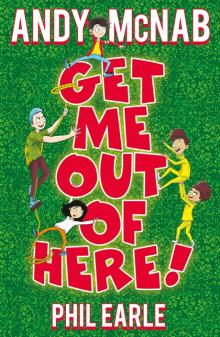 Get Me Out of Here!
Get Me Out of Here!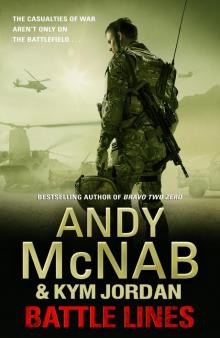 Battle Lines
Battle Lines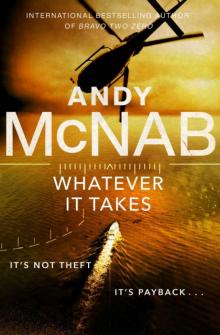 Whatever It Takes
Whatever It Takes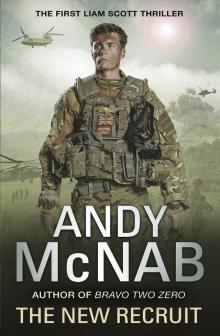 The New Recruit
The New Recruit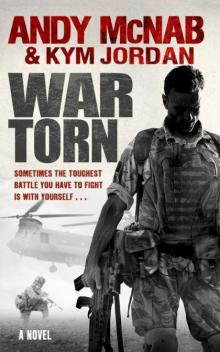 War Torn
War Torn Brute Force
Brute Force Crossfire
Crossfire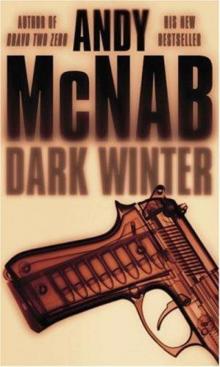 Dark Winter ns-6
Dark Winter ns-6 The Grey Man
The Grey Man Spoken from the Front
Spoken from the Front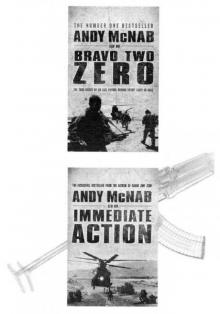 Meltdown
Meltdown Recoil
Recoil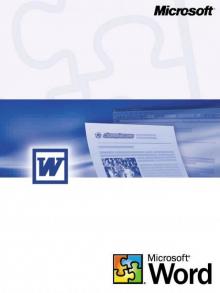 Nick Stone 1 - Remote Control.
Nick Stone 1 - Remote Control.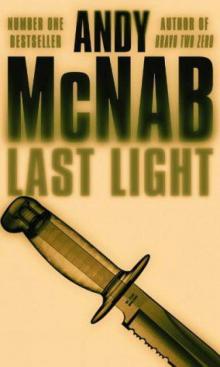 Last Light ns-4
Last Light ns-4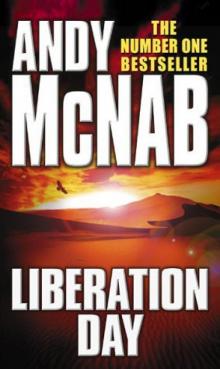 Liberation day
Liberation day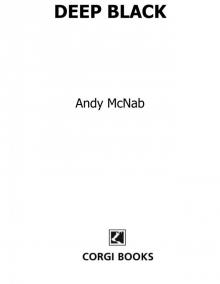 Deep Black
Deep Black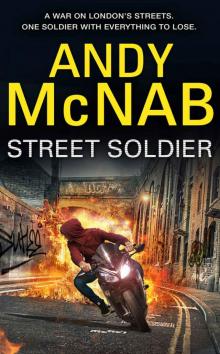 Street Soldier
Street Soldier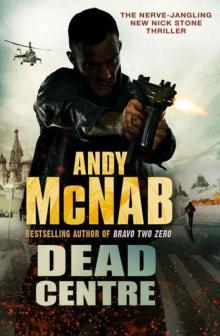 Dead Centre ns-14
Dead Centre ns-14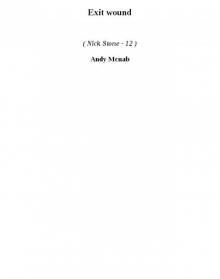 Exit wound ns-12
Exit wound ns-12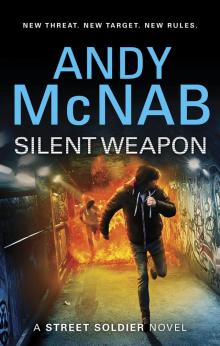 Silent Weapon
Silent Weapon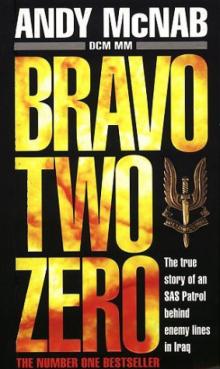 Bravo two zero
Bravo two zero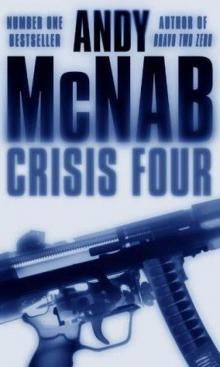 Crisis Four ns-2
Crisis Four ns-2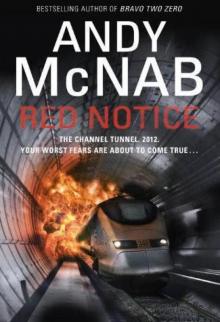 Red Notice
Red Notice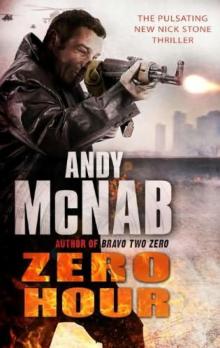 NS13 Zero Hour
NS13 Zero Hour Firewall
Firewall Last Light
Last Light Aggressor
Aggressor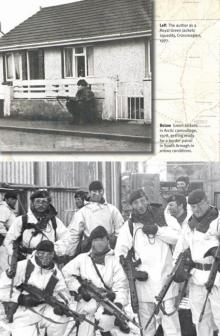 Seven Troop
Seven Troop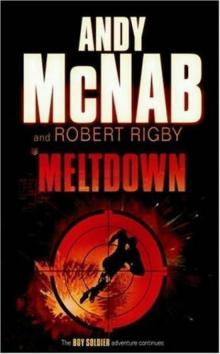 Meltdown bs-4
Meltdown bs-4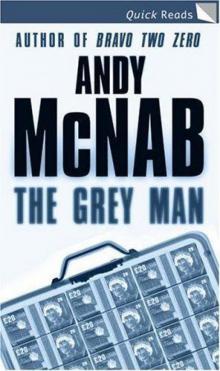 The Grey Man (quick reads)
The Grey Man (quick reads)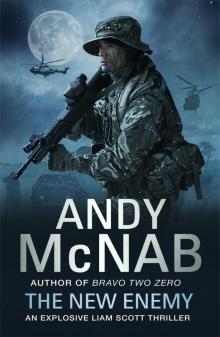 The New Enemy
The New Enemy Avenger
Avenger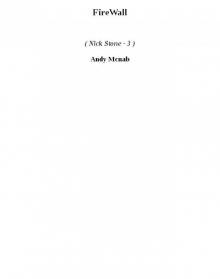 FireWall ns-3
FireWall ns-3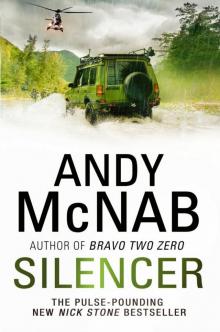 Silencer
Silencer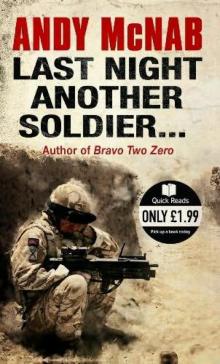 Last Night-Another Soldier…
Last Night-Another Soldier…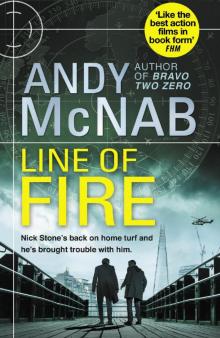 Line of Fire:
Line of Fire: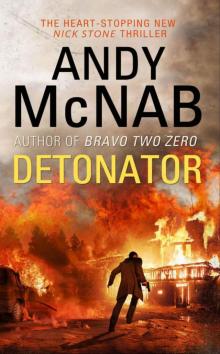 Detonator
Detonator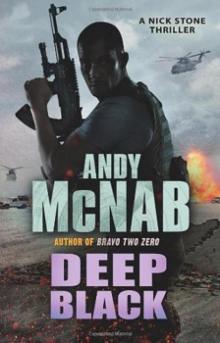 Deep Black ns-7
Deep Black ns-7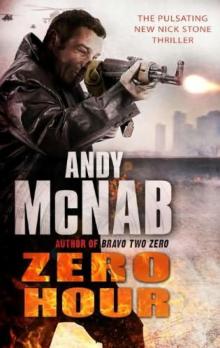 Zero Hour (2010) ns-13
Zero Hour (2010) ns-13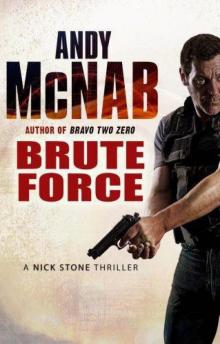 Brute Force ns-11
Brute Force ns-11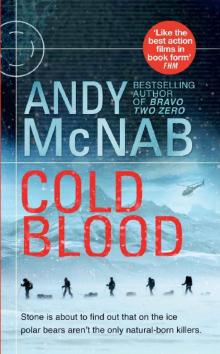 Cold Blood
Cold Blood Terminal Velocity
Terminal Velocity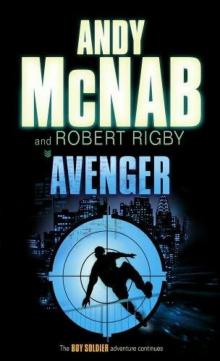 Avenger bs-3
Avenger bs-3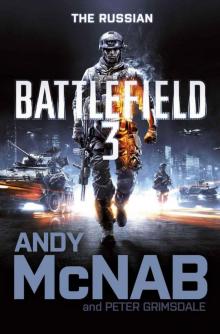 Battlefield 3: The Russian
Battlefield 3: The Russian DropZone
DropZone Zero Hour
Zero Hour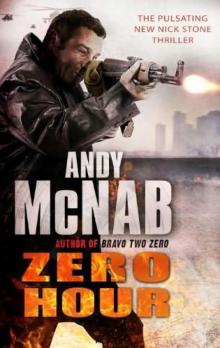 NS13 Zero Hour (2010)
NS13 Zero Hour (2010)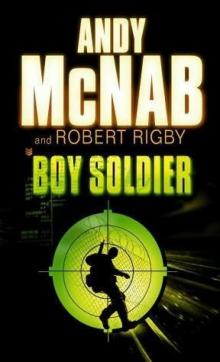 Boy soldier bs-1
Boy soldier bs-1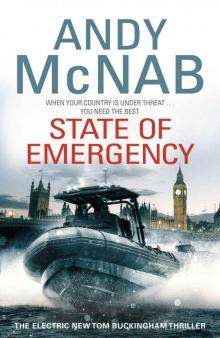 State Of Emergency: (Tom Buckingham Thriller 3)
State Of Emergency: (Tom Buckingham Thriller 3)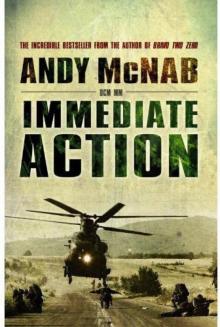 Immediate Action
Immediate Action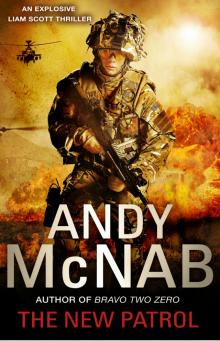 The New Patrol
The New Patrol Crisis Four
Crisis Four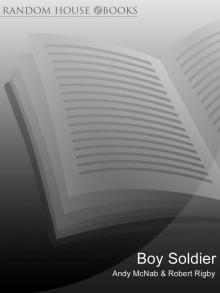 Boy Soldier
Boy Soldier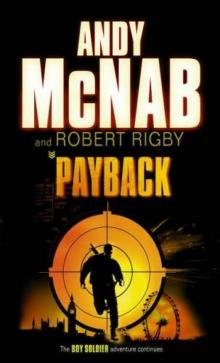 Payback bs-2
Payback bs-2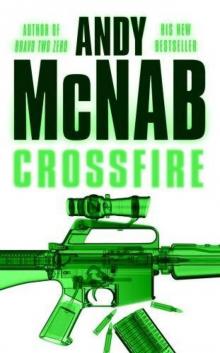 Crossfire ns-10
Crossfire ns-10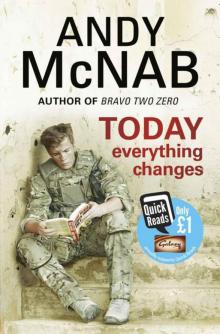 Today Everything Changes: Quick Read
Today Everything Changes: Quick Read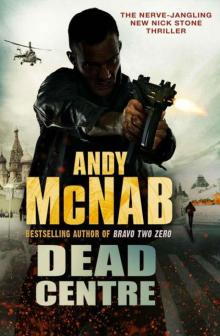 Dead Centre
Dead Centre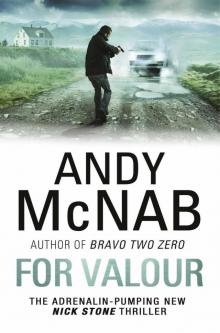 For Valour
For Valour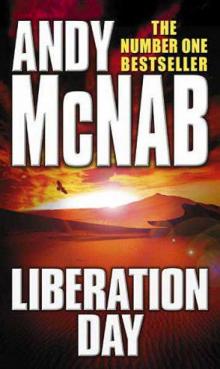 Liberation Day ns-5
Liberation Day ns-5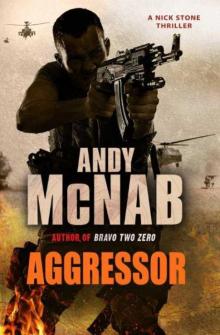 Aggressor ns-8
Aggressor ns-8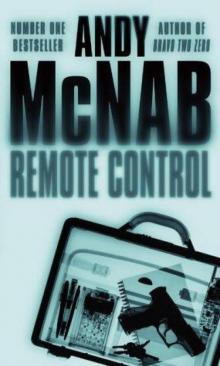 Remote Control ns-1
Remote Control ns-1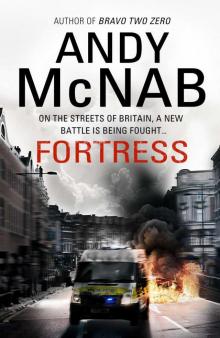 Fortress
Fortress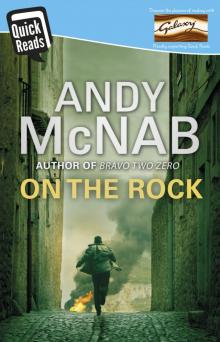 On the Rock
On the Rock Dark Winter
Dark Winter